Michigan and the Challenge of Roadside Marijuana Tests
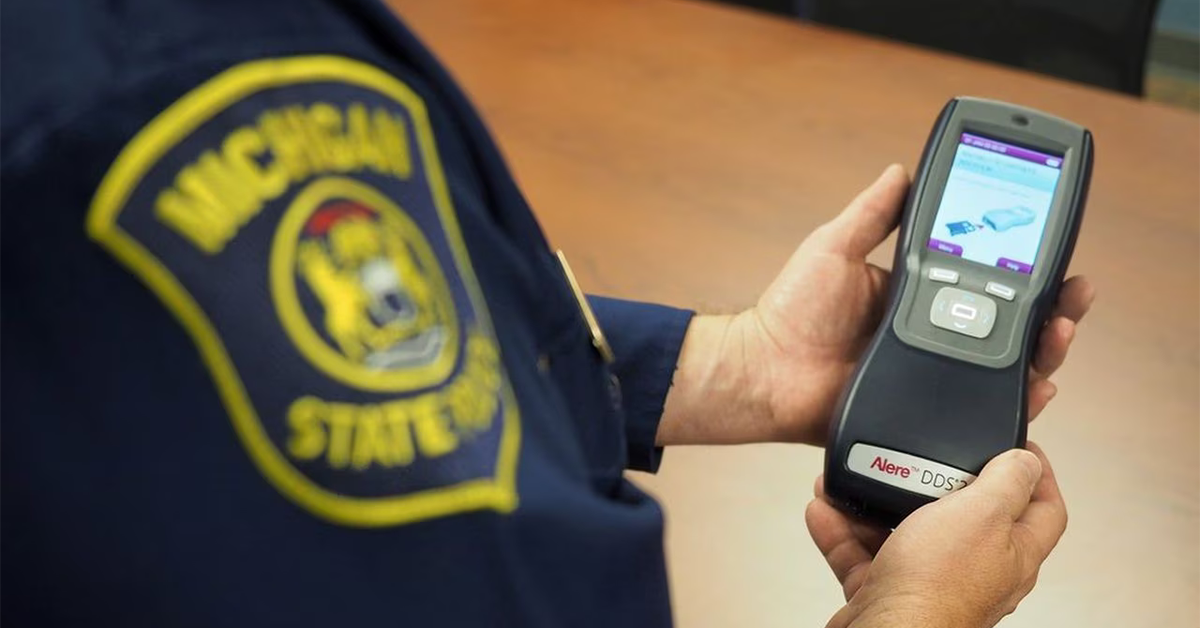
Statewide legislatures, including Michigan's, are progressively implementing laws based on roadside saliva tests for drug-impaired driving. Of primary concern is the detection of THC, the key psychoactive ingredient in marijuana. Yet, while well-intentioned, these laws underscore a tension between legal enforcement and scientific evidence.
Alcohol impairment is readily gauged with breath tests, as blood alcohol concentration directly corresponds to impairment levels. Marijuana, however, is a different challenge. THC blood levels don't directly equate to impairment, a fact supported by research from the University of California, San Diego, which found that field sobriety tests aren't precise enough on their own to detect THC impairment.
This situation is exacerbated by the fact that THC lingers in the body for days or even weeks after consumption. Current tests struggle to differentiate between a driver impaired from recent marijuana use and one who consumed days earlier.
In Michigan's neighboring state, Kansas, law enforcement has adopted the SoToxa test, which detects THC and other drugs. However, its use is problematic. SoToxa only detects the presence, not the concentration, of a drug. The foundational principle of pharmacology, "the dose makes the poison," reminds us that it's the quantity, not mere presence, that determines impairment.
Implications extend beyond driving. Many sectors, such as transportation and healthcare, mandate drug tests. Workers can lose their jobs due to these flawed tests. For instance, a truck driver might test positive for THC because of legal hemp-based CBD oil consumption, which can contain trace amounts of THC.
Michigan stands at a crossroads, reflecting the broader national dilemma. With marijuana decriminalization gaining traction, it's essential to revisit and refine our testing methods. Organizations like Stop Drugged Driving and studies from the AAA Foundation for Traffic Safety emphasize the complexities in determining THC impairment thresholds.
The allure of a zero-tolerance policy, while administratively simpler, risks unjustly penalizing unimpaired individuals due to highly sensitive testing equipment. We must prioritize both public safety and fairness. In this effort, the guiding principle should be to uphold scientific accuracy and justice, even if it means resisting quick fixes and reevaluating our approach to drug testing in Michigan.
Michigan Cannabis Sales Remain Steady in August
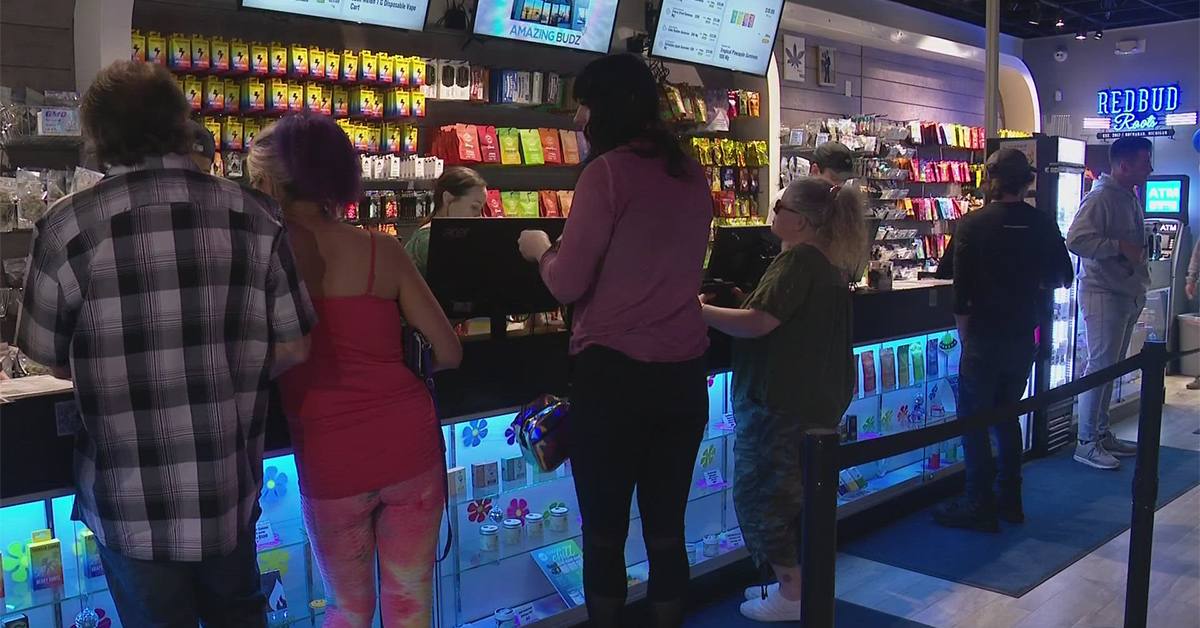
Michigan saw a subtle dip in cannabis sales from a record $276.7 million in July to $276.3 million in August. However, the bigger picture tells a story of rapid growth: sales have surged 32.9% from the same period last year, marking an increase from last month's 31.8% year-over-year growth rate.
The Michigan Cannabis Regulatory Agency offers a detailed breakdown between medical and recreational sales:
-
Medical Sales: Witnessed a significant drop of 69.5% from last year, totaling $5.6 million. This is an 8.3% decrease from July.
-
Adult-Use Sales: Continued its robust growth, shooting up 42.9% year-over-year to $270.6 million, maintaining its momentum from July.
Additionally, the state offers insights into sales and pricing across different cannabis categories, for both medical and recreational uses.
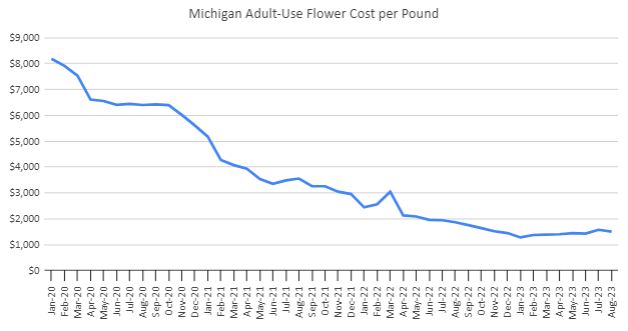
One notable trend is the falling price of flower for recreational use. In August, the average price stood at $1507 per pound, a sequential drop of 4.5% and a sharp 19.4% decrease from last year's figures.
Looking at a broader timeframe, Michigan's cannabis sales swelled by 82.1% in 2021, reaching $1.79 billion. The momentum continued into 2022, with sales growing 27.9% to clock in at $2.29 billion. For 2023, the sales trajectory remains promising. In just the first eight months, sales have risen by 36.8% compared to the same period in 2022. As supply chain efficiencies improve and distribution networks widen, the Michigan cannabis market is poised for further growth.
Three Rivers Considers Cannabis Lounge Ordinance Expansion

Three Rivers city officials are deliberating an expansion to the existing marijuana ordinance that could pave the way for cannabis lounges. If greenlit, these lounges will find a home in the heart of the central business district, encompassing downtown.
The push for this revision stemmed from a petition spearheaded by Daly Broekema, the proprietor of Daly Dope dispensary. Current regulations hindered her expansion aspirations. "The existing ordinance focused mainly on retail operations and safety protocols. There wasn't a definitive 'no' to lounges; they just weren't included," Broekema noted.
After a 5-1 initial approval by the city commission, Broekema is a step closer to transforming the third floor of a historic building on Portage Avenue. She envisions a split usage: part social lounge, operational during regular business hours, offering a haven for people to enjoy food and non-alcoholic beverages. She sees this as a valuable setting for patrons to responsibly and legally consume cannabis, especially those who wish to avoid consumption at home or in public. "Many individuals, including parents, seek an alternative to consuming at home. They neither want to resort to their cars nor break the law by consuming publicly," Broekema emphasized.
The additional space is designated for events and educational initiatives, introducing cannabis fundamentals and safe consumption practices. Broekema said, "Despite the burgeoning cannabis industry, misconceptions persist. My aim is to demystify and destigmatize."
However, not all officials share her enthusiasm. City commissioner Pat Dane voiced significant reservations, largely due to marijuana's federal status. "I'm sworn to uphold the law. How can we justify introducing lounges for public smoking when it remains federally illegal?" Dane questioned.
Broekema counters by highlighting the legal status of recreational marijuana at the state level. She's eager to address and correct misconceptions that overshadow the cannabis industry. "Many perceive cannabis merely as a misused recreational drug. I intend to rectify that perspective through education," she added.
A public hearing for the proposal's follow-up reading is slated for Tuesday, September 19th. Should the ordinance be ratified and implemented, Broekema anticipates launching the lounge by summer 2024, subject to necessary permits.
Support for Striking UAW Members: Greenhouse of Walled Lake Offers Discounts and More

Greenhouse of Walled Lake, a marijuana dispensary located in Oakland County, is providing a 50% discount on its products to active UAW members during the duration of their strike. Additionally, these members can obtain a free container of Wana brand gummies, which some claim are beneficial for sleep and stress.
Jerry Millen, the owner of the dispensary, commented on this initiative: "A significant portion of our regular customers are from GM, Ford, and Stellantis. We're offering this as they strike."
To further their involvement, the dispensary is selling T-shirts at $20 each with the imprint "We Support Our Local Auto Workers." All revenue from this will go to the UAW Strike Fund.
Greenhouse of Walled Lake, located at 103 East Walled Lake Drive, holds the title of being Oakland County's first fully licensed medical and recreational marijuana dispensary. They have been known to offer unique promotions in the past, such as their "Super Bowl specials" for football enthusiasts.
The UAW's decision to strike emerged after contract negotiations with Detroit automakers proved unsuccessful. This led to UAW members halting work at several assembly plants in Michigan, Ohio, and Missouri.
Supporters Rally Behind Rick Johnson Amid Bribery Charges
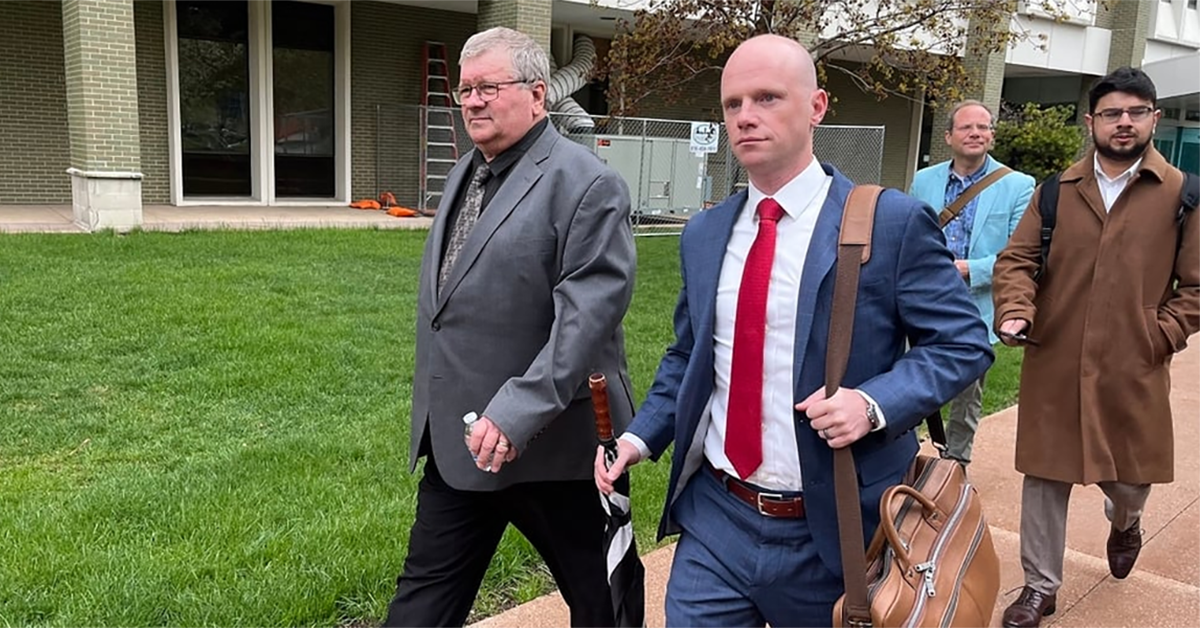
Prominent figures, including the father of Gov. Gretchen Whitmer and former state legislators, have rallied in support of Rick Johnson, ex-House Speaker, as his fate hangs in the balance amid bribery allegations during his tenure with Michigan's now-defunct Medical Marijuana Licensing Board.
Johnson's defense, led by attorney Nicholas Dondzila, submitted a memo late Thursday accompanied by letters from 20 influential personalities. Notably, among the writers were Richard Whitmer, former CEO of Blue Cross Blue Shield of Michigan; ex-Senate Majority Leader Randy Richardville; and ex-Representatives such as Larry Julian, James Howell, and others.
Richard Whitmer, in a candid statement, admitted, "We all err, but our true mettle is tested by our response." Back in April, he penned his belief in Johnson's potential for reform, stating that Johnson had committed a "grave error" but will ensure to steer clear of any misdeeds in the future.
The prosecution is pushing for Johnson, 70, to serve a minimum of six years behind bars. However, Dondzila argues for clemency, highlighting Johnson's cooperative nature with investigators, his unblemished past record, his years of public service, and the extensive support he's garnered.
The ex-House Speaker, a Republican hailing from LeRoy, held his position from 2001-2004. After serving his term, he became a lobbyist for 12 years. His subsequent appointment to the marijuana licensing board in 2017 by then-Gov. Rick Snyder has now become a focal point of controversy. Admissions of accepting over $110,200 in cash and perks from licensing aspirants have been confirmed, including alleged bribes of sexual deeds.
However, Johnson's peers, such as Richardville, remember him differently. In August, Richardville penned a letter emphasizing Johnson's effectiveness as a leader, despite not being "perfect and/or polished."
Many have described Johnson as a man full of regret, who shouldn't be solely judged based on this crime but on his lifetime's worth of actions. Edward Gaffney mentioned in June that Johnson feels deeply apologetic for the dishonor he has caused.
In related news, another defendant, businessman John Dawood Dalaly of West Bloomfield Township, recently received a two-year prison sentence for bribing Johnson. Meanwhile, two cannabis business lobbyists, Brian Pierce and Vincent Brown, await their sentencing on October 18th.
Understanding the Mental Health Impact of Tobacco and Cannabis Co-Use
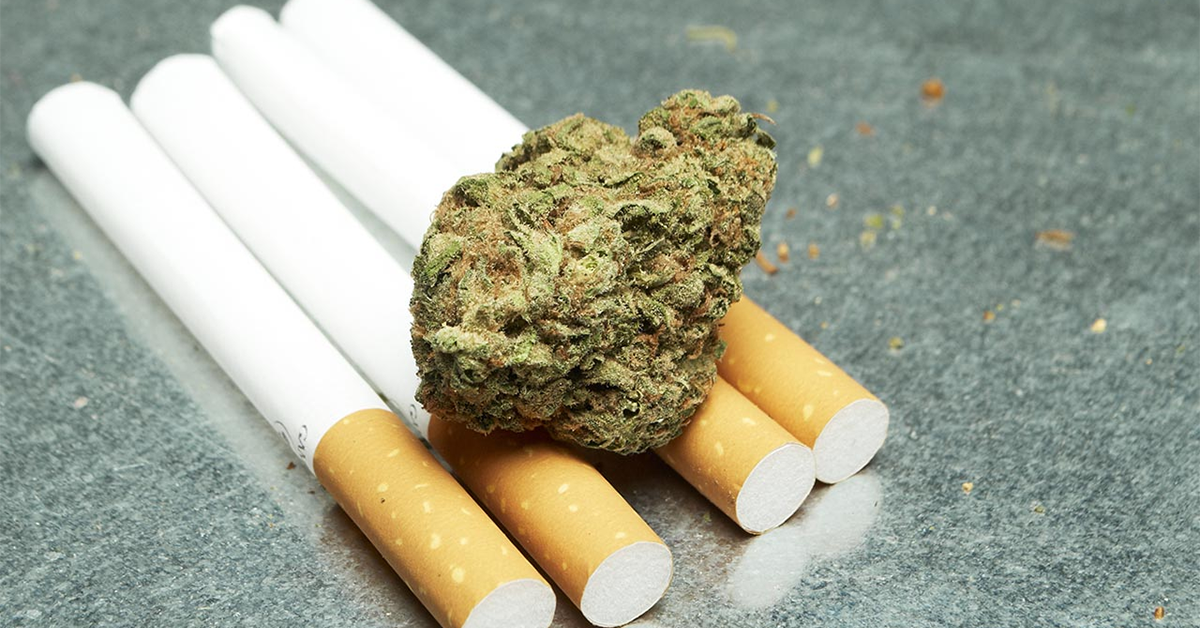
In an era of increasing acceptance of recreational cannabis and ongoing tobacco use, a digital cohort study aimed to understand the mental health outcomes associated with their use. The study, involving a sample of US adults, was conducted during the early to later stages of the COVID-19 pandemic and offers important insights for both public health and clinical practice.
Key Findings
-
There's a clear association between the use of tobacco and/or cannabis and self-reported anxiety and depression.
-
Notably, those who reported co-use (both tobacco and cannabis) displayed significantly higher odds of anxiety compared to those who used tobacco alone.
-
Daily use of cigarettes, e-cigarettes, and cannabis was associated with an increased likelihood of reporting anxiety and depression.
-
Surprisingly, participants were less likely to report anxiety and depression in the later stages of the COVID-19 pandemic (2022) compared to its early phase (2020).
Implications
-
Co-Use and Vulnerability: The research flags the critical issue of the comorbidity of substance use and mental health. Individuals using both tobacco and cannabis were found to be especially vulnerable to poor mental health, potentially making cessation more challenging.
-
Role of Alcohol: Beyond tobacco and cannabis, increased alcohol consumption was also linked to heightened anxiety odds, underscoring the potential risks of polysubstance use.
-
Screening for Substance Use: Given that tobacco and cannabis use is prevalent among those with mental health concerns, routine screening for these substances should be integrated into mental health treatment programs.
-
Treatment Coordination: Coordinating tobacco and cannabis cessation programs with mental health treatment could enhance outcomes. Implementing alternative coping strategies might be beneficial for those using these substances to manage or mitigate anxiety and depression symptoms.
Limitations
While the study sheds light on the intertwined nature of substance use and mental health, there are limitations to consider.
- The research design does not confirm a cause-and-effect relationship.
- The findings may not be generalized broadly as the study used a convenience sampling method, and the participants do not represent the broader US population.
- The study only inquired about certain modes of cannabis consumption, leaving other methods unexplored.
- Some data might be biased due to reliance on self-reported information, and certain crucial details, such as the purpose of cannabis use, were not collected.
Concluding Thoughts
Understanding the complex relationship between tobacco, cannabis, and mental health is pivotal in today's world. This study underlines the pressing need to integrate substance use considerations into mental health interventions and calls for a holistic approach to treatment. As society's perception of these substances continues to evolve, it is paramount for research to keep pace and offer clear guidance for public health initiatives and clinical practices.


 Helpful Links
Helpful Links